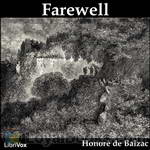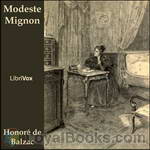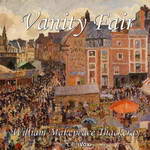|
Books Should Be Free Loyal Books Free Public Domain Audiobooks & eBook Downloads |
|
|
Books Should Be Free Loyal Books Free Public Domain Audiobooks & eBook Downloads |
|
Fiction |
|---|
|
Book type:
Sort by:
View by:
|
By: John Galsworthy (1867-1933) | |
|---|---|
 The Patrician
The Patrician
| |
 Inn of Tranquillity
Inn of Tranquillity
| |
By: Kurt Vonnegut (1922-2007) | |
|---|---|
 2 B R 0 2 B
2 B R 0 2 B
In this chilling short-story by a master of the craft, Kurt Vonnegut creates a fictional world of the future where life and death are no longer matters of individual choice or destiny. The title refers to the famous quote from Hamlet, “To be or not to be....” with “0” being pronounced as “naught.” It also refers to the eternal dilemma of life and death that face every human being at some point in their lives. Written in 1962 it is set in some unspecified time in the future, when earth has become a Utopia... | |
By: Henry Wadsworth Longfellow (1807-1882) | |
|---|---|
 The Children's Longfellow Told in Prose
The Children's Longfellow Told in Prose
| |
By: Gustave Flaubert (1821-1880) | |
|---|---|
 Three Short Works
Three Short Works
Here is a collection of strikingly different pieces by Flaubert: a prose poem in the voices of Death, Satan and Nero; the trials and apotheosis of a medieval saint; and the life of a selfless maid in 19th century France. Each exhibits the vigorous exactness, and the mixture of realism and romanticism, for which Flaubert is renowned. | |
 Salammbô
Salammbô
After completing the famous Mme Bovary, Flaubert put all his efforts into researching the Punic Wars and completed the lesser known Salammbô. In this volume, Flaubert describes in detail the Mercenary Revolt and the fight of the Mercenaries against the all-powerful Carthage, the theft of the magical Zaimph and the love and hate between the Carthaginian princess Salammbô and the fiercest leader of the Mercenaries, Matho. | |
 Sentimental Education, Volume II The History of a Young Man
Sentimental Education, Volume II The History of a Young Man
| |
 Madame Bovary A Tale of Provincial Life
Madame Bovary A Tale of Provincial Life
| |
 A Simple Soul
A Simple Soul
| |
 The Temptation of St. Antony or A Revelation of the Soul
The Temptation of St. Antony or A Revelation of the Soul
| |
 Bouvard and Pécuchet A Tragi-comic Novel of Bourgeois Life
Bouvard and Pécuchet A Tragi-comic Novel of Bourgeois Life
| |
 Herodias
Herodias
| |
By: Honoré de Balzac (1799-1850) | |
|---|---|
 Sarrasine
Sarrasine
Published by Honoré de Balzac in the tempestuous year of 1830, the tale follows the undulating pathways of Sarrasine the sculptor’s shocking journey to his coming of age. As one of the “fathers of realism” Balzac painted with his words a vivid portrait of life in the swirling salons of Europe at the end of the Bourbon monarchy, and we follow Sarrasine from France to Italy in search of both his métier and his muse.However it is also the story of La Zambinella, an Italian singer with whom Sarrasine falls madly and passionately in love. But that passion holds a secret which Sarrasine spies too late. | |
 The Girl with the Golden Eyes
The Girl with the Golden Eyes
"Give me a feast such as men give when they love," she said, "and whilst I sleep, slay me..."Listeners who like to plunge straight into a story would do well to skip the lengthy preamble. Here, Balzac the virtuoso satirist depicts the levels of Parisian society as a version of the Inferno of Dante - but perhaps keeps the reader waiting too long for the first act of his operatic extravaganza.Our beautiful, androgynous hero, Henri de Marsay, is one of the bastard offspring of a depraved Regency milord and himself practises the cynical arts of the libertine... | |
 Farewell
Farewell
In his startling and tragic novella Farewell (‘Adieu’), Balzac adds to the 19th century’s literature of the hysterical woman: sequestered, confined in her madness; mute, or eerily chanting in her moated grange. The first Mrs Rochester lurks in the wings; the Lady of Shalott waits for the shadowy reflection of the world outside to shatter her illusion. Freud’s earliest patients will soon enter the waiting-room in their turn. Whilst out hunting two friends come across a strange waif-like woman shut up in a decaying chateau which one of them dubs “the Palace of the Sleeping Beauty”... | |
 Modeste Mignon
Modeste Mignon
Modeste Mignon, a young provincial woman of romantic temperament, imagines herself to be in love with the famous Parisian poet Melchior de Canalis. However, he is not moved by her attentions. He invites his secretary Ernest de la Brière to "deal with the matter". Ernest answers Modeste's letters in his name and acts as her lover, disguised as Canalis. The scene changes dramatically when Ernest discoveres that Modest is, in fact, a rich heiress. Would he be able to win her heart despite his lie? | |
 Louis Lambert
Louis Lambert
Louis Lambert is an 1832 novel by French novelist and playwright Honoré de Balzac (1799–1850), included in the Études philosophiques section of his novel sequence La Comédie humaine. Set mostly in a school at Vendôme, it examines the life and theories of a boy genius fascinated by the Swedish philosopher Emanuel Swedenborg (1688–1772). Balzac wrote Louis Lambert during the summer of 1832 while he was staying with friends at the Château de Saché, and published three editions with three different titles... | |
 The Unknown Masterpiece 1845
The Unknown Masterpiece 1845
| |
 Droll Stories
Droll Stories
| |
 A Woman of Thirty
A Woman of Thirty
| |
 Parisians in the Country
Parisians in the Country
| |
By: William Makepeace Thackeray (1811-1863) | |
|---|---|
 Vanity Fair
Vanity Fair
If you've enjoyed watching the 1998 BBC television miniseries, you'd probably want to renew your acquaintance with William Makepeace Thackeray's 1847 novel, Vanity Fair. However, if you're unfamiliar with what has been dubbed one of the Best 100 Books in English Literature, you certainly have a treat ahead. Miss Pinkerton's Academy in Chiswick Mall in London is where young ladies with ambitions of making a good marriage are sent by their socially aspiring middleclass parents. Two young ladies, Amelia Sedley and Rebecca (Becky) Sharpe are on their way home after completing their term at Miss Pinkerton's... | |
 The History of Henry Esmond, Esq., A Colonel in the Service of Her Majesty Queen Anne
The History of Henry Esmond, Esq., A Colonel in the Service of Her Majesty Queen Anne
A classic Victorian novel and a historical novel rolled into one! Read about court and army life during the reign of Queen Anne – a story of Catholic – Protestant intrigue, and the party which aspired to the restoration of Bonny Prince Charlie. And, a good love story as well. | |
 The Christmas Books of Mr. M.A. Titmarsh
The Christmas Books of Mr. M.A. Titmarsh
| |
 Rose And The Ring
Rose And The Ring
Victorian social satire hiding in a set of children's fairy tales by the author of the classic "Vanity Fair" | |
 Virginians
Virginians
It tells the story of Henry Esmond's twin grandsons, George and Henry Warrington. Henry's romantic entanglements with an older woman lead up to his taking a commission in the British army and fighting under the command of General Wolfe at the capture of Quebec. On the outbreak of the American War of Independence he takes the revolutionary side. George, who is also a British officer, thereupon resigns his commission rather than take up arms against his brother. | |
 Catherine: a Story
Catherine: a Story
| |
 Burlesques
Burlesques
| |
 Men's Wives
Men's Wives
| |
 The Memoirs of Mr. Charles J. Yellowplush
The Memoirs of Mr. Charles J. Yellowplush
| |
 The Bedford-Row Conspiracy
The Bedford-Row Conspiracy
| |
 The Fatal Boots
The Fatal Boots
| |